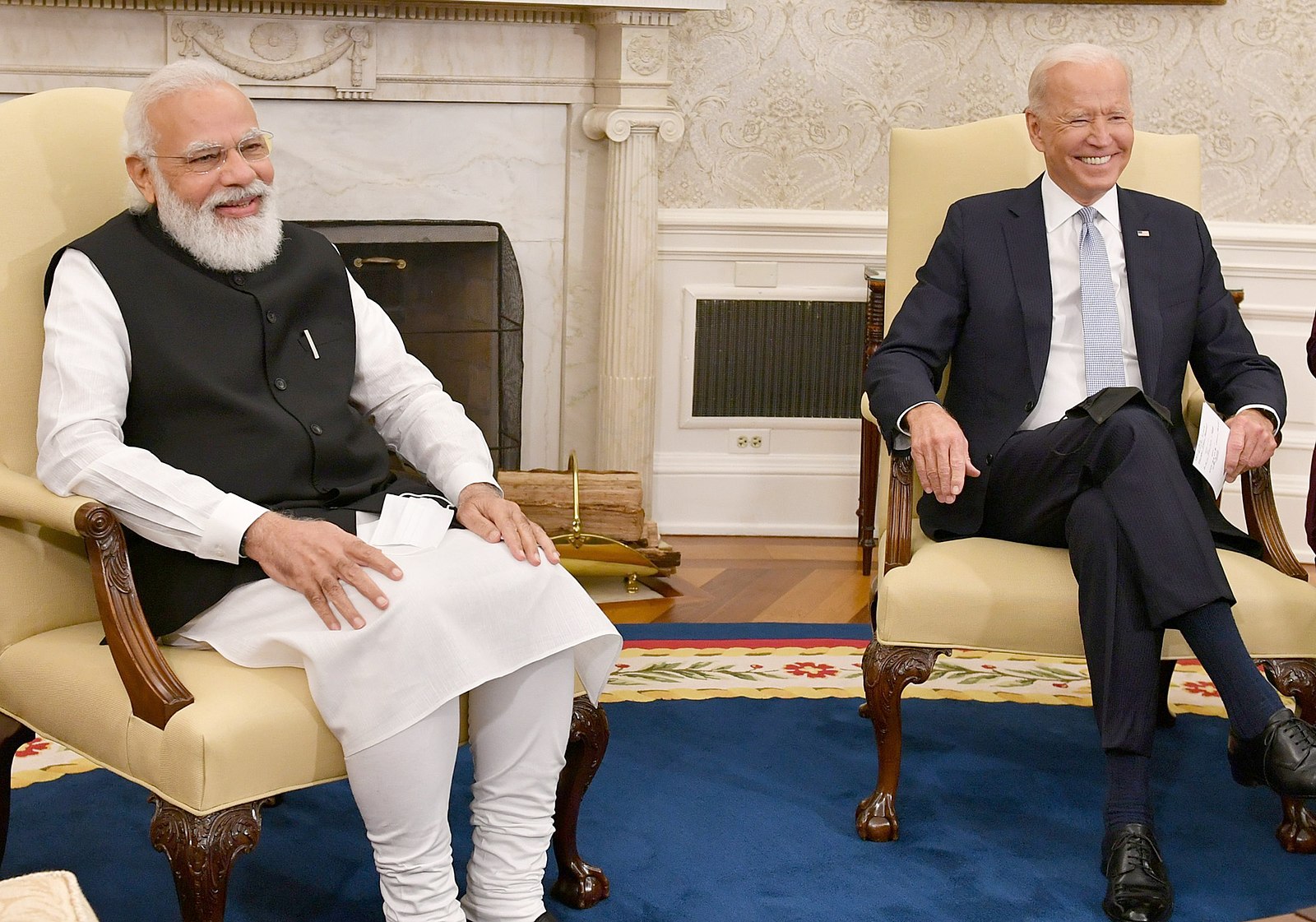Pivot to India

Prime Minister Narendra Modi of India and President Biden
Ben Johnson -Earlier this week, President Biden met with Prime Minister Narendra Modi of India to discuss increased cooperation regarding advanced technology. Negotiations ranged from sharing research on artificial intelligence to the production of defense technologies such as jet engines and infantry vehicles.
Over the last few years, the U.S. has increasingly sought to decrease its reliance on Chinese manufacturing and markets. In doing so, it has begun to pivot toward India. To better understand what this means and why it matters, we can use the concept of geopolitical codes. Geopolitical codes are how a country, in this case, the U.S., orients itself in the context of the wider international stage. These codes are based on several factors, including how to defend against current and future threats and keep and create allies. In this case, the U.S. is seeking to contain the growth of Chinese dominance in areas such as semiconductor production and cutting-edge technologies. Thus, the U.S. is attempting to reduce its reliance on China and continue to remain a competitor. A partnership with India would be a critical factor in allowing this to happen while also strengthening the U.S. sphere of influence. Despite the agreements made, both leaders recognized the powerful role and obstacle that the private sector plays. Even with increased governmental collaboration and agreements, it is ultimately up to individual companies to decide whether U.S.-Indian partnerships would benefit them. This consideration highlights a limitation of geopolitical codes.
Should the U.S. and India continue to develop a partnership, there would be a significant change in relational power in the global community, particularly with China. Relational power refers to a country's power compared to other countries. For instance, a strong partnership between India and the U.S. would increase both countries' relational power as they rely less on Chinese goods and increase their overall material power.
Image source: Prime Minister's Office (GODL-India), GODL-India, link, via Wikimedia Commons

